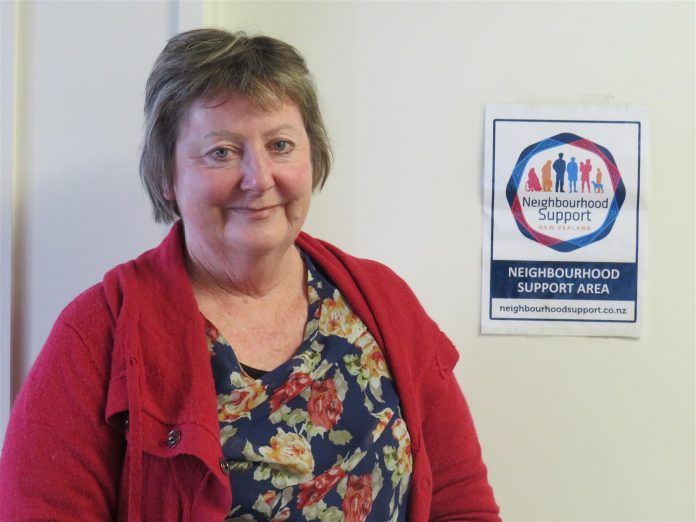In a significant emergency event like the Alpine fault magnitude 8 (AF8) earthquake, help will not come immediately and neighbours are going to need each other.
Ashburton District Neighbourhood Support (NHS) co-ordinator Sue Abel said now is the time to get to know your neighbours and be prepared.
‘‘In a major emergency like AF8 households need to be prepared by having seven days of supplies because it could take at least this long before outside support is available.’’
Sue’s role is to help neighbourhoods and communities to build resiliency, to give them enough information to be able to look after themselves and support those around them.
The NHS has been around for a number of years and has changed from when the organisation began as Neighbourhood Watch.
Then the focus was on keeping a watch on what was happening in your neighbourhood, now it is support.
It still involves keeping a watch but extends now to supporting your neighbours through events such as covid when many people reached out to neighbours be it to help get groceries or chat over the fence during lockdown.
The work of NHS isn’t just about preparing for an emergency they also work to reduce crime and isolation through fostering connections between neighbours.
Sue said knowing your neighbours and your area well, ‘‘enables you to pickup when things aren’t right, like a strange car hanging around or the older person whose curtains aren’t open when they normally would be.’’
It can also mean helping when a neighbour is away, by feeding a pet, keeping an eye on a property or emptying the letter box.
NHS also helps todistribute information from police to help neighbours work together to keep their properties safe.
The NHS programme GetsReady is where people can register their skills and the resources they have available that could assist others in an emergency for example who has a four wheel drive or is a nurse.
‘‘In the event of an emergency, your neighbours are your first line of support and this is a great tool to connect neighbours to be able to support each other,’’ Sue said.
Sue said knowing your neighbours could be vital in a large emergency, ‘‘where the emergency services and supplies may not be able to reach you or your neighbourhood for hours, days or weeks.’’
‘‘You don’t need to be best friends with your neighbours but knowing who they are, having contact details for each other and being aware of their skills, resources and needs could make a big difference in an emergency.’’
If neighbours get to know each other and form NHS groups then when an emergency happens ‘‘agencies like the Emergency Operation Centre then have the street contact they can communicate key messages through, especially if there is limited avenues for communicating through but it also means the street contact can liaise with emergency services what are the needs in that street.’’
To be prepared for an emergency ‘‘ the best things we can each do have an evacuation plan, know your neighbours, their skills, resources and needs, have seven days of supplies for everyone in the household including babies and animals, and the supplies should include things like water, food, medication, torch, battery operated radio and a way to cook like a bbq.’’
‘‘Everyone also needs a grab bag with medication or a list of it, bottle of water, light weight blanket, working torch, copies of important documents, supplies for babies and pets, sturdy footwear and warm clothing in the event you need to evacuate.’’




